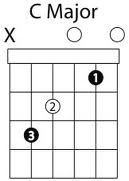
A good example of a finger picker is Mark Knopfler (Dire Straits). He is an amazing guitarist and as true master at finger picking. For a taste of his skills look at the live versions of Sultans Of Swing on YouTube and check out his solos. Seriously he's pretty boss, some parts of the solos are hard to get right with a pick!
Playing with your fingers gives you quite a unique sound. It sounds more soft than when you use a pick.
You might think flamenco is not for you, but please do check out the flamenco players as they are absolute masters at what they do. They are the best of the best. The speed at which they play at and the difficulty are incredible.
In my opinion finger picking sounds best when you use a classical guitar with nylon strings. Classical guitars sound softer and prettier than normal guitars and you can create some great music with them.
Playing with your fingers is definitely worth learning. It is a skill every serious guitarist should acquire, no matter what technique they fancy most. It simply makes a better and more complete guitarist.











